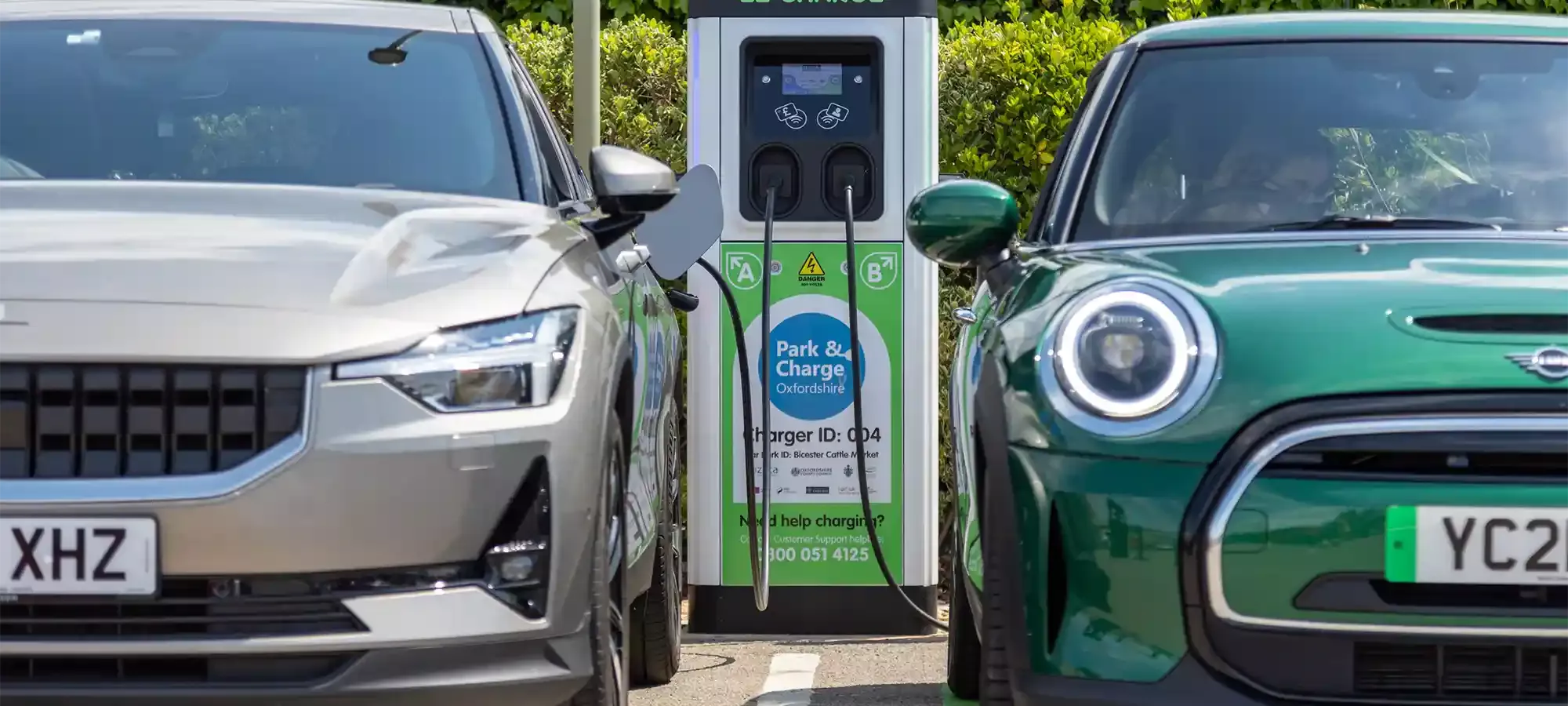Park and Charge
Overview
The purpose of this project is to develop an alternative path to electric vehicle ownership and use for households without sufficient or appropriate parking to charge electric vehicles from their homes. Park and Charge (PnC) aims to deliver a new technological and business model design via an easy-to-use, car-park-based service.
This model proposes that low-cost, overnight charging solutions in often under-utilised car parks near residential areas could serve electric vehicle owners and users who belong to the estimated 30% of households in the UK who lack access to home charging. Building upon a successful feasibility study, local SME Zeta Group are producing and installing state-of-the-art, smart Electric Vehicle Service Equipment (EVSE) across 20 Local Authority owned car parks in partnership with Oxfordshire County Council and another local SME [ui!]uk, who will demonstrate an interoperable electric Mobility Service Provider (eMSP) platform and app.
With 20 charging hubs installed in car parks around Oxfordshire, PnC is a pilot scheme of sufficient size to develop the experience required for future large scale adoption and the replication of this charging model and design elsewhere.
Aim and Objectives
TSU and colleagues in the Energy and Power Group are involved in this industry-led project to study the social and behavioural aspects of potential PnC customers and ensure the PnC solution is inclusive, accessible, and affordable. Our research objectives include:
- assessing the importance of parking routines and options within the overall decision process of adopting a plug-in electric vehicle;
- exploring how well the business model meets user expectations in order to refine its market potential and upscale the concept; and
- understanding how the installation of EVSE is perceived within the adjacent residential neighbourhood by different social groups and other street and car park users.
Research Approach
The analysis of user behaviour and market potential is based on a combination of qualitative and quantitative methods. The results, responses and data from EV uptake forecasting, a survey of 2000 UK car drivers, and interviews of current and expectant EV drivers are brought together to provide advice to commercial partners during the trial. The integrated analysis has also led us to prepare three policy briefings notes and two open source tools to assist other local authorities in deploying the Park and Charge business model.
Outputs
Policy Briefing Notes
- Enabling the acceleration of electric vehicle adoption Policy Briefing Note, February 2022.
- Preferences for public electric vehicle charging Policy Briefing Note, February 2022.
- Charging when parking - a social change of routine Policy Briefing Note, February 2022.
Publications
- Budnitz, H., Meelen, T. and Schwanen, T. Public residential charging of electric vehicles: An exploration of UK user preferences, European Transport Studies 1, 100004;
- Budnitz, H., Meelen, T. and Schwanen, T. (2024) Electric vehicle adoption intentions among UK residents parking in shared and public spaces. Transportation.
- Budnitz, H. (2024) From interest to evangelist: Accelerating the adoption of electric vehicles via distinct parking and charging practices in the United Kingdom. Energy Research and Social Science. p.103675.
- https://www.cittimagazine.co.uk/comment/why-are-we-still-on-the-fence-about-evs.html
EPG Tools
In brief
Duration
2019 - 2022
Funder
Innovate UK
Partners
University of Oxford (Energy and Power Group); Zeta Group; Oxfordshire County Council; [ui!]uk
Principal Investigator
TSU researchers
Dr Hannah Budnitz
Dr Toon MeelenContact



